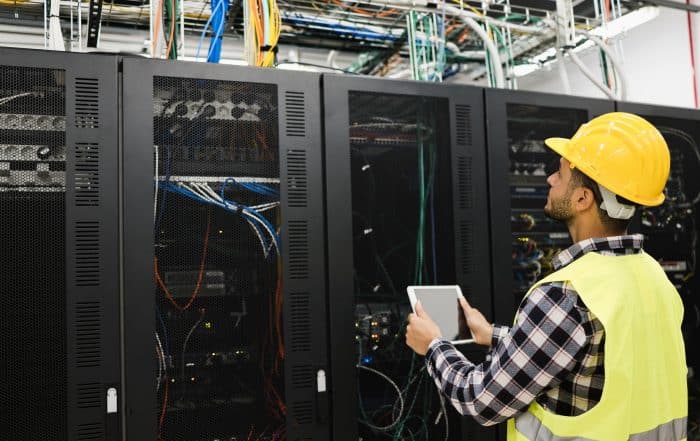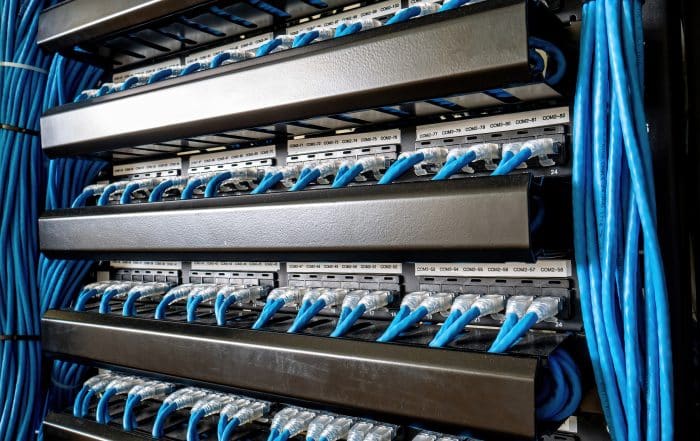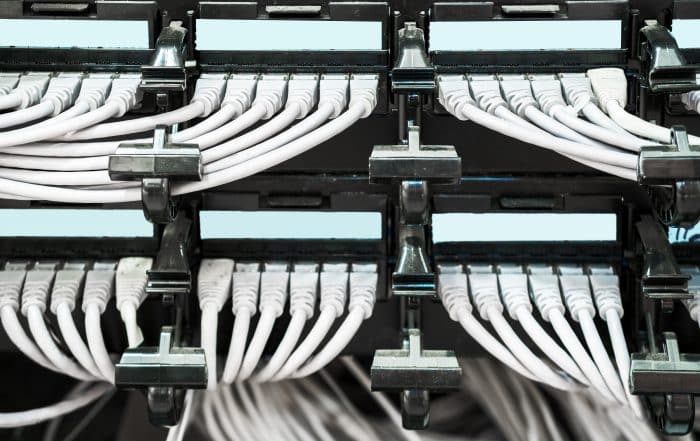
Fiber Optic vs. Copper Cabling: Choosing the Right Solution for Your Business
Cabling is the foundation of business infrastructure, and how well or efficient your business is performing depends on how well-planned your cabling network is. Choosing the right cable type is, of course, the first step in laying this foundation. Whether to opt for copper cabling or Fiber optics for your business could be a critical choice for you to make depending on your network connectivity needs and the company’s operational scope. You must be fully aware of all the subtle differences between these two most common cabling solutions as you strive to build a dependable and high-performing network infrastructure for your organization. To make an informed and intelligent decision suited to your company’s requirements, you would need to know the pros and cons of each cable type. So here, we will explore some of the differences between copper and fibre optic cabling wires to see which one ticks more boxes for you.
Fibre Optic has The Speed
Fibre Optic will help you reach data speeds that are much faster than copper cabling. Fibre wiring uses light pulses to transmit data through strands of plastic or possibly glass fibres. It would not be wrong to call it the pinnacle of high-speed network connectivity. It provides unparalleled bandwidth and speed to the users. Fibre optics cables can support data transfer speeds of up to 100 Gbps. With its speed advantage, fibre optic is the most preferred choice for companies with higher data transfer requirements. They may be the speed boost your network needs if your company has to work with processes or applications like conducting a large amount of video conferencing, using cloud-based apps, or conducting other operations that might need to exchange massive amounts of data.
Copper Wire Cabling: A Reliable and Proven Solution
Other than the Fiber optic cable, you have an alternative in the form of Copper cabling, which, on the other hand, has been in use for a long time and is still widely prevalent among businesses in various sectors. This cabling type uses electric impulses to transfer the data. Copper wiring is a tried and tested cabling infrastructure solution and is popular, especially for its durability. The fact that copper cabling has been dependably supporting companies’ networking infrastructure for so many years is why it is still a favourite for many. For shorter distances, in particular, Copper Cabling is often preferred as it is an efficient and affordable solution for data communication. It would best suit your networking needs if your company or office is situated in a constrained area and does not necessarily require super-fast data transmission speeds.
Fibre has the upper hand in Bandwidth, but Does Your Company Need It?
Bandwidth is one of the main areas used to compare the fibre optic and copper cables to make a decision. In this case, fibre optic cabling would win since it provides significantly greater bandwidth than copper cabling. But the most important factor is whether your company even needs that much bandwidth.
Fiber Optic means Future-Proofing your Network
Investing in Fibre Optic Cabling would be a preferred step to future-proofing your connectivity if your operations require managing bandwidth-intensive software apps, real-time conference communication, or similar collaborative work, which most certainly demand massive data transfers. On the contrary, Copper Cabling offers a more affordable, cost-efficient option that guarantees durability. Still, it is only good if your regular daily business operations can do so without the need for enormous data speeds.
Copper’s Dependability vs. Fiber’s Extended Coverage
The distance your data cables can span or cover is also a factor that could influence your choice of the right cable for your company. In terms of longer reach without losing your signal, it is one of the features where fibre optic cabling has an edge over copper wiring. Fibre is the go-to option for companies that need connectivity between remote locations or have wide-ranging infrastructures. In contrast, Copper Cabling has widely built a reputation of reliability and dependability over the years when deployed for shorter distances. Suppose your company operations are limited to a smaller physical space, like a building or an office floor. In that case, you may go for the reliable and more affordable solution, which is copper cabling.
Copper Cabling can tackle Environmental Factors better
When it comes to the environmental aspects that affect you depending on the location of your business infrastructure, the copper cable can most often be very resilient. Because copper cabling is resilient under adverse circumstances, it can be used in settings with high interference and can also handle extremely high-temperature environments. So if that high bandwidth is not necessary and your company operates in more of an industrial setting where it is likely to encounter environmental difficulties, it would be better to opt for the durable Copper Cabling.
Striking a balance between price and performance
If not always, but quite often, one of the factors is the price. Because of its better performance and modern technology, fibre optic cabling also tends to have a higher initial cost. Copper Cabling continues to be a very affordable and dependable option, especially for companies with more limited funds. However, the long-term advantages may make investing in fibre cabling worthwhile as faster connectivity becomes necessary.
Concluding Remarks
The question of Fibre Optic vs. Copper Cabling cannot be answered in a way that would universally apply to everyone, and that is why you should contact professional cabling services. You can contact Cabling Hub anytime for a free evaluation of your cabling infrastructure needs. We have provided expert cabling solutions across the Greater Toronto Area and have helped businesses optimize connectivity for their enterprises for nearly two decades. Our experts are available 24/7 to help and guide you regarding your cabling solutions based on your specific business requirements and guarantee a solution that will enhance your network connectivity.




